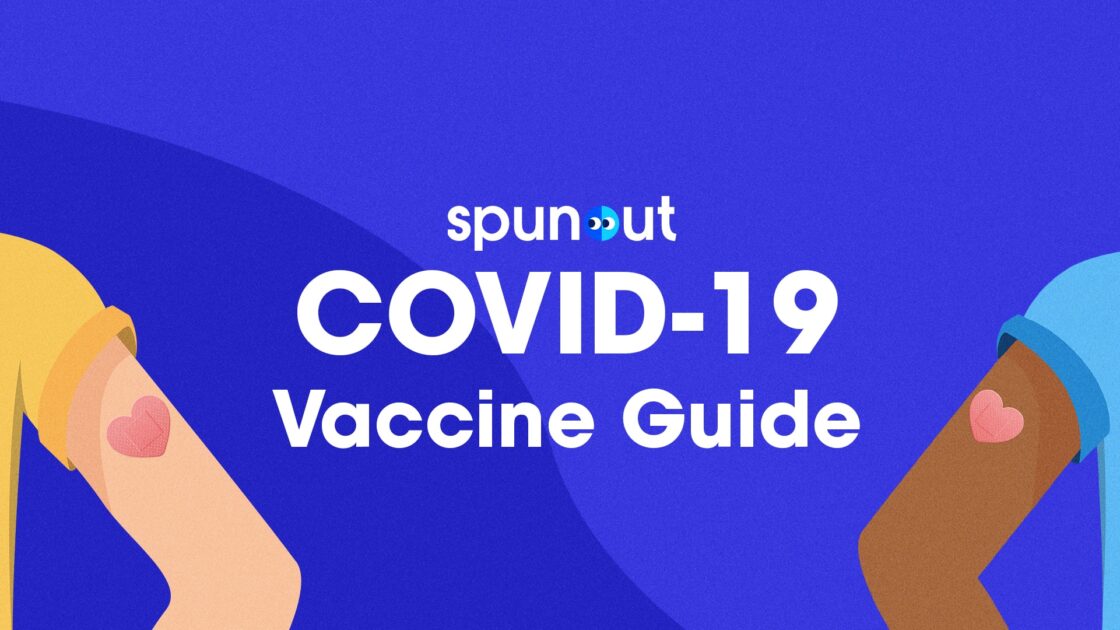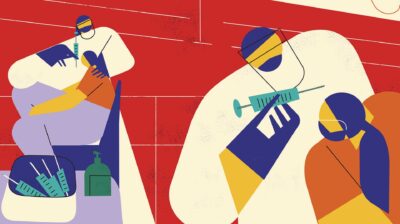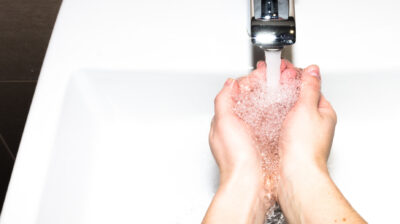How to register for the COVID-19 vaccine
People over the age of 16 can consent to a COVID-19 vaccine in Ireland

Getting vaccinated is the best way to protect yourself against COVID-19. Vaccines help to boost your immunity to the virus, which means it will teach your immune system how to protect you from the virus. This can help to prevent serious illness if you are infected with COVID-19. Getting vaccinated can also help to protect those around you by limiting the spread of the virus.
The COVID-19 vaccine is available free of charge. There are also booster doses available to those who have received their first round of vaccinations.
In this article:
- How to register for your first COVID-19 vaccine
- How to get the COVID-19 vaccine booster
- Walk-in vaccination clinics
- Types of COVID-19 vaccines
- Vaccine side-effects
- COVID-19 vaccine concerns
How to register for your first COVID-19 vaccine
If you are over the age of 16, you can give consent to the vaccine without needing permission from a parent or guardian.
If you are under the age of 16, you will need permission from a parent or guardian.
Registering for the vaccine for people aged 16 and over
If you have not received a COVID-19 vaccine, you can register for one by booking through the HSE online portal. After registering, you will receive a text message with your appointment details 3-7 days before the appointment. You should receive an appointment date within three weeks of registering.
In order to book online, you will need to provide:
- Your mobile number
- Your email address
- Your PPS number
- Your Eircode
If you cannot register online, you can call the COVID-19 helpline to register instead.
What do I need to bring to my vaccine appointment?
When you go to your vaccine appointment, you will need to bring your appointment information. This will be on your mobile phone or in a letter.
You will also need to bring a photo ID with you. Your photo ID can be your:
- Passport – book or card
- Driving licence
- Public Services Card
- Travel pass
- National Age Card
- School or college ID
If your photo ID does not have your date of birth on it, you should also bring a copy of your birth cert or another document that has your date of birth.
If you are 16 or 17 and do not have a photo ID, you can bring your birth cert.
What happens at my vaccine appointment?
It is important to arrive on time for your vaccine appointment. You should plan to be at the centre for around 30 minutes. This will give you 15 minutes to check in and receive the vaccine, and you will need to stay there for another 15 minutes to make sure you are feeling well after the vaccine.
You do not need to wait 15 minutes if you are receiving your booster dose, unless you had a severe allergic reaction to the first or second dose. A severe allergic reaction to the vaccine is rare.
If you are over 18, you must go to your appointment alone. Someone can drive you there, but you will have to go inside by yourself. If you are 16 or 17, you can attend your vaccination appointment by yourself, but you can bring a parent or guardian with you if you want to.
When will I be fully protected by the vaccine?
It is important to remember that you are not fully vaccinated until you have received all doses of your vaccine and have waited the necessary waiting period. Once this waiting period has passed, you are considered fully vaccinated. This means that your vaccine is offering you the highest level of protection it can offer. It is a good idea to continue to protect yourself in other ways during the waiting period.
The waiting period is:
- 7 days after the second dose of the Pfizer Vaccine
- 14 days after the second dose of the Moderna vaccine
- 14 days after the one-dose Janssen vaccine
- 15 days after the second dose of the AstraZeneca vaccine
Your immunity lasts around three months. After three months, you will need to get a COVID-19 vaccine booster in order to keep up the same level of protection.
Can I get vaccinated if I have symptoms of COVID-19?
You will need to postpone your vaccine appointment if:
- You have symptoms of COVID-19 – you must self-isolate and take a test
- You are restricting your movements
To postpone your appointment, log in to the registration system to view the options.
How to get the COVID-19 vaccine booster
A vaccine booster is used to give better protection to people who have received the first round of vaccines against COVID-19. The first round of vaccines means:
- One dose the Janssen vaccine
- Two doses of the AstraZeneca vaccine
- Two doses of the Pfizer Vaccine
- Two doses of the Moderna vaccine
Over time, our protection from vaccines can weaken, which is why a booster dose is given to boost that protection.
Currently, you must wait three months after completing the first round of vaccinations before you can get the booster.
If you have had COVID-19 since you completed the first round of vaccines, you should get your booster three months after receiving your positive test result.
Who can get a booster dose?
Booster doses are now being offered to those aged 18 and over.
How to get the booster
You can currently get a booster dose by:
- Booking an appointment at a vaccination centre
- Booking an appointment with a participating pharmacy
- Going to a walk-in booster clinic for your age group
- You may also be able to get your booster from your GP
Walk-in vaccination clinics are offering boosters during specific days and times. You do not need an appointment to attend. However, some walk-in clinics are only offering boosters to people in certain age groups at the moment. It is a good idea to check the opening times and age requirements of a walk-in clinic before attending by visiting the HSE website.
If you want to go to a walk-in clinic instead of attending the appointment scheduled for you by the HSE, you can reply to their text message with the word ‘REJECT’ and attend the walk-in clinic instead. Find out more about walk-in vaccination clinics below.
What vaccine will I be offered when I get my booster?
If you are 29 or younger, you will be offered the Pfizer/BioNTech COVID-19 vaccine as your booster dose. If you are 30 or over, you will be offered either the Pfizer of Moderna vaccine as your booster dose. Read more about the different types of vaccine below.
Can I get my booster if I have symptoms of COVID-19?
You will need to postpone your vaccine appointment if:
- You have symptoms of COVID-19 – you must self-isolate and take a test
- You are restricting your movements
To postpone your appointment, fill out the postponement form from the HSE.
Walk-in vaccination clinics
Walk-in vaccination clinics are available to certain age groups during certain times. In order to find out if a walk-in clinic is open near you, select your county from the drop-down list on the HSE walk-in clinic page.
What do I bring to a walk-in vaccination clinic?
You don’t have to register online before going to a walk-in clinic but registering may speed up your time in the vaccination centre. If you have already registered online, you only need to bring photo identification with your date of birth on it. If your ID does not have your date of birth on it, then also bring a copy of your birth cert.
If you have not registered online, you will need to bring/ know:
- Proof of your personal Public Service (PPS) number – if you have one
- Eircode
- Mobile phone number
- Email address
- Photo ID that has your date of birth – this can be a passport, driving licence, Garda age card, school ID
What vaccine will I receive at a walk-in clinic?
Most walk-in clinics offer the first or second dose of the Pfizer vaccine, but other vaccines may be available in some clinics. The type of vaccine being offered at each clinic is stated on this list of vaccination centres and walk-in clinics.
Types of COVID-19 vaccines
There are currently four vaccines approved for use in Ireland. All of these vaccines have been tested to ensure they are safe for use and effective in protecting against COVID-19. All COVID-19 vaccines prepare your body’s immune system to defend itself against the virus.
You cannot get COVID-19 from a vaccine. Instead, it helps to protect you against the virus.
Janssen vaccine
If you are aged 18 to 34 and book a vaccine through a pharmacy, you will receive the Janssen vaccine. This is also known as ‘the Johnson & Johnson vaccine’ as Johnson & Johnson are the company that makes this vaccine.
You will receive one dose of this vaccine in your upper arm. It takes 14 days after getting the vaccine to have the best protection against COVID-19. This is when you are considered to be fully vaccinated.
The Janssen vaccine is not recommended for people who are pregnant or those who are allergic to any of the ingredients. If the Janssen vaccine is not suitable for you for these reasons, or if your doctor advises you that it is not suitable for another medical reason, you will be offered another vaccine.
There is a very rare risk of developing unusual blood clots with low platelets with the Janssen vaccine. The risk of this very rare condition is higher in younger people for both vaccines. Learn about Janssen side effects to know what to watch out for after receiving the vaccine. Remember, these side effects are very rare, but if you are concerned about the risks of the vaccine, talk to your GP or the person giving you your vaccine.
AstraZeneca vaccine
Young people have the choice to opt-in for the AstraZeneca vaccine. You will need two doses of the AstraZeneca vaccine. People who received a first dose of AstraZeneca can get an AstraZeneca, Pfizer-BioNtech or Moderna vaccine as their second dose.
You will receive your second dose four to 12 weeks after your first dose. It takes 15 days after getting the second dose to have the best protection against COVID-19. This is when you are considered to be fully vaccinated.
If you are pregnant and have not been given a vaccine yet, you will be offered a different COVID-19 vaccine to the AstraZeneca vaccine. However, if you have already had your first dose of the AstraZeneca vaccine, you should still get your second dose. If you are allergic to any of the ingredients in the AstraZeneca vaccine, or if your doctor advises you that it is not suitable for another medical reason, you will be offered another vaccine.
There is a very rare risk of developing unusual blood clots with low platelets with the AstraZeneca vaccine. The risk of this very rare condition is higher in younger people for both vaccines. Learn about AstraZeneca side effects to know what to watch out for after receiving the vaccine. Remember, these side effects are very rare, but if you are concerned about the risks of the vaccine, talk to your GP or the person giving you your vaccine.
Pfizer vaccine
If you register to receive a vaccine at a vaccination centre, Pfizer is one of the vaccines that you might receive. This is also known as the BioNTech vaccine.
You will need two doses of the Pfizer vaccine. You will receive your second dose four weeks after your first. It takes seven days after getting the second dose to have the best protection against COVID-19. This is when you are considered to be fully vaccinated.
If you are allergic to any of the ingredients in the Pfizer vaccine, or if your doctor advises you that it is not suitable for another medical reason, you will be offered another vaccine.
Moderna vaccine
If you register to receive a vaccine at a vaccination centre, Moderna is one of the vaccines that you might receive.
You will need two doses of the Moderna vaccine. You will receive your second dose four weeks after your first. It takes 14 days after getting the second dose to have the best protection against COVID-19. This is when you are considered to be fully vaccinated.
If you are allergic to any of the ingredients in the Moderna vaccine, or if your doctor advises you that it is not suitable for another medical reason, you will be offered another vaccine.
Does the COVID-19 vaccine cause any side effects?
Some people who receive the COVID-19 vaccine will experience mild side effects such as pain in the area that the vaccine was given, joint pain, sickness, fever, headaches and tiredness. These usually disappear after a few days. If you do get side effects after your vaccine, you can report them to your doctor, nurse or pharmacist.
Serious side effects like severe allergic reactions are extremely rare. Your vaccinator will be trained to treat any allergic reactions if they do occur. If you are concerned about any side effects after you get your vaccinated, you can contact your GP for advice.
When you get vaccinated, you will be given a booklet with information on side effects of the vaccine you have received.
Janssen and AstraZeneca side effects
In addition to the side effects listed above, unusual blood clots are one very rare side effect of the Janssen and AstraZeneca vaccines. The risk of this very rare condition is higher in younger people for both vaccines. Learn about Janssen side effects and AstraZeneca side effects to know what to watch out for after receiving the vaccine. Remember, these side effects are very rare, but if you are concerned about the risks of the vaccine, talk to your GP or the person giving you your vaccine.
COVID-19 vaccine concerns
There is a lot of information out there about the COVID-19 vaccines. However, not all of it is true. It is important to understand the facts about COVID-19 vaccines and to know that they have all been tested to make sure that they are safe.
Do I have to get a vaccine?
It is up to you to decide if you want to get a COVID-19 vaccine. However, getting a vaccine is the best way to protect yourself and others from COVID-19.
Will a vaccine stop me from getting COVID-19?
A vaccine will greatly reduce your chances of getting COVID-19. If you do get COVID-19 after being vaccinated, you are unlikely to get any serious symptoms.
How do we know that the vaccines are safe?
All of the COVID-19 vaccines being used in Ireland have been tested to ensure that they are safe to use. They have still gone through all the usual steps needed to develop a safe and effective vaccine.
There are several reasons why COVID-19 vaccines could be developed more quickly than usual:
- A lot of money was invested into researching them around the world
- The high number of COVID-19 cases worldwide meant that vaccine trials could quickly measure differences in diseases risk
- Large scale manufacturing of vaccines started before the results of trials were available
- Regulators and those developing the vaccines started their conversations very early so the authorisation process could be done quickly once trials were complete
What if I am pregnant?
The COVID-19 vaccine has not been shown to cause any harm to pregnant people or babies in the womb. Getting a vaccine will greatly reduce your chances of getting COVID-19 while pregnant and becoming very ill.
If you are pregnant, your maternity hospital will phone you to arrange a vaccine for you. You can also talk to your obstetrician (doctor specialising in pregnancy and reproductive health) or midwife at any of your hospital appointments to arrange getting your vaccine.
The vaccines being offered to pregnant people are the Pfizer and the Moderna vaccines.
Read more about COVID-19 vaccines and pregnancy.
What if I am breastfeeding?
There is no known reason to avoid breastfeeding after you get your COVID-19 vaccine.
If you have any other concerns or questions about the COVID-19 vaccine, your vaccinator will be happy to answer any questions you have at your appointment. You can also visit the HSE website for accurate and up to date information on the vaccines.
Need more information?
We are here to answer your questions and talk through your options. Our online chat service is for 16 to 25 year olds and is available Monday to Friday, 4pm to 8pm. Chat to us now about your situation.
- Chat now to a trained Youth Information Officer
- Or leave us a message and we will email you back
Feeling overwhelmed or want to talk to someone right now?
- Get anonymous support 24/7 with our text message support service
- Connect with a trained volunteer who will listen to you, and help you to move forward feeling better
- Free-text SPUNOUT to 50808 to begin
- Find out more about our text message support service
If you are a customer of the 48 network or cannot get through using the ‘50808’ short code please text HELLO to 086 1800 280 (standard message rates may apply). Some smaller networks do not support short codes like ‘50808’.





